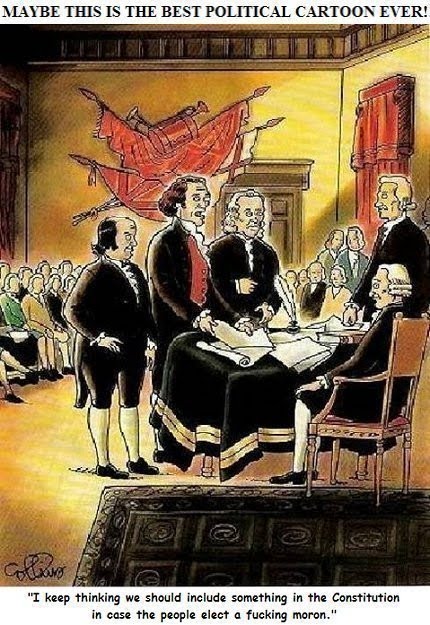Friday, January 20, 2012
You know why Wisconsin doesn't fall into Lake Michigan, right? It's because Illinois sucks. Want more proof? Read below, Illinois is ranked 50th out Obama's 57 states!
Illinois gets downgraded by Moody’s
posted January 20, 2012 by Ed Morrissey
Say, remember when the state of Illinois took the Democratic approach to fixing their budget woes by raising taxes? The debt problems of the Land of Lincoln would disappear, Governor Pat Quinn argued, if the state hiked corporate and personal income tax rates by as much as two-thirds. The extra revenue would stabilize the state’s fiscal footing and pull them from the brink of financial disaster.
How well did that work out? As the Wall Street Journal reports today, Illinois debt has now been downgraded to the lowest rating of all 50 states by Moody’s:
Though too few noticed, this month Moody’s downgraded Illinois state debt to A2 from A1, the lowest among the 50 states. That’s worse even than California. The state’s cost of borrowing for $800 million of new 10-year general obligation bonds rose to 3.1%—which is 110 basis points higher than the 2% on top-rated 10-year bonds of more financially secure states.
This wasn’t supposed to happen. Only a year ago, Governor Pat Quinn and his fellow Democrats raised individual income taxes by 67% and the corporate tax rate by 46%. They did it to raise $7 billion in revenue, as the Governor put it, to “get Illinois back on fiscal sound footing” and improve the state’s credit rating.
So much for that. In its downgrade statement, Moody’s panned Illinois lawmakers for “a legislative session in which the state took no steps to implement lasting solutions to its severe pension underfunding or to its chronic bill payment delays.” An analysis by Bloomberg finds that the assets in the pension fund will only cover “45% of projected liabilities, the least of any state.” And—no surprise—in part because the tax increases have caused companies to leave Illinois, the state budget office confesses that as of this month the state still has $6.8 billion in unpaid bills and unaddressed obligations.
Another state tackling debt and budget issues went another direction, and Moody’s noticed the difference — and the WSJ warns Wisconsin voters to take a look at the alternative:
In contrast to the Illinois downgrade, Moody’s has praised Mr. Walker’s budget as “credit positive for Wisconsin,” adding that the money-saving reforms bring “the state’s finances closer to a structural budgetary balance.” As a result, Wisconsin jumped in Chief Executive magazine’s 2011 ranking of each state’s business climate—moving to 17th from 41st. Illinois dropped to 48th from 45th as ranked by the nation’s top CEOs.
Yet Mr. Walker, who balanced the budget without new taxes, is the governor facing a union-financed attempt to recall him from office this year. If Wisconsin voters want to see where a state ends up without the kind of reforms that Mr. Walker made, they need only look to the Greece next door.
Dan Mitchell says that the Illinois approach only exacerbated the problem by feeding the spending addiction rather than starving it:
In other words, higher taxes led to fiscal deterioration in Illinois, just as tax increases in Europe have been followed by bad outcomes.
Whenever any politician argues in favor of a higher tax burden, just keep these two points in mind:
1. Higher taxes encourage more government spending.
2. Higher taxes don’t raise as much money as politicians claim.
The combination of these two factors explains why higher taxes make things worse rather than better. And they explain why Europe is in trouble and why Illinois is in trouble.
They may finally be getting the message in Illinois. Republicans in the state legislature, outnumbered though they may be, have started an effort to repeal Quinn’s tax hikes. The failure of Quinn in Illinois does provide a valuable example of how not to address a fiscal crisis brought on by overspending, and one that voters in every state should study carefully. As part of that study, here is Mitchell’s video from May that teaches why this policy was always doomed to failure:










































































